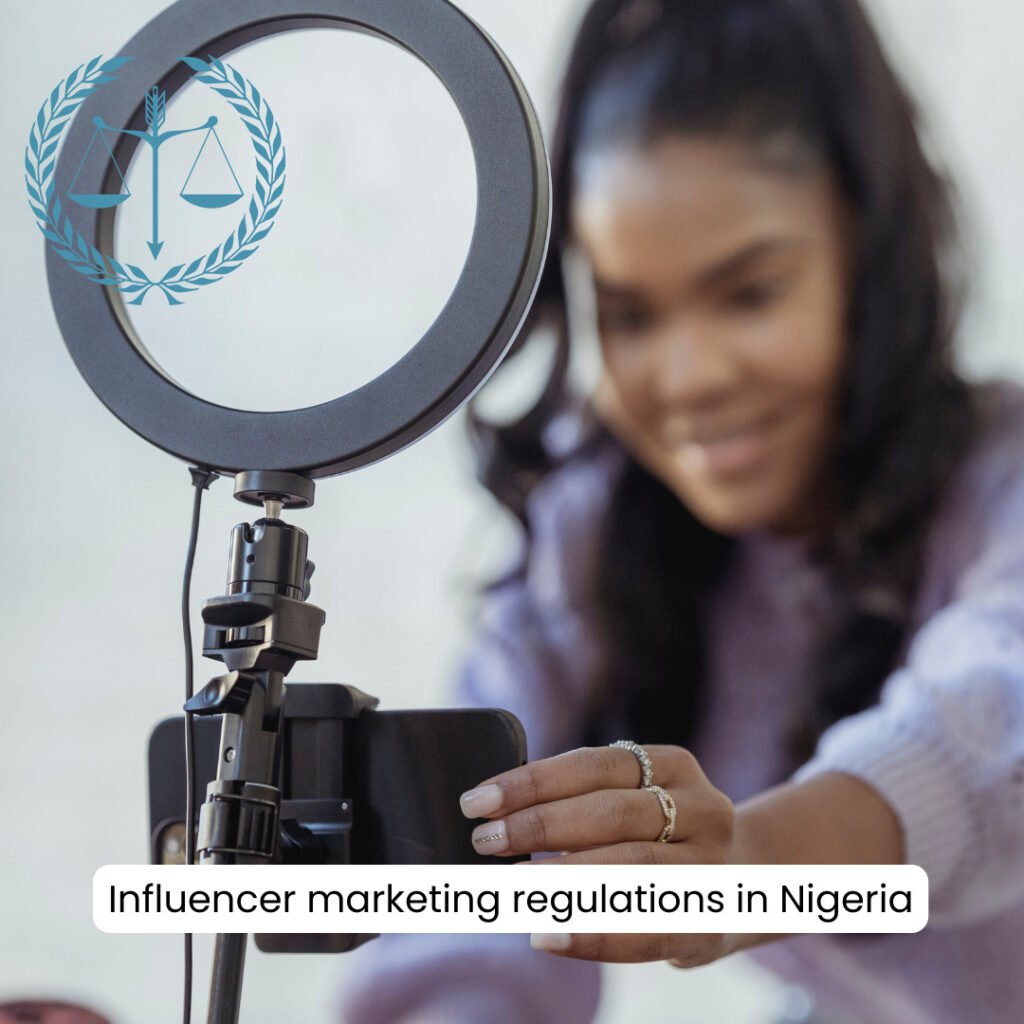Influencer Marketing Regulations in Nigeria
In the dynamic realm of digital marketing, influencer marketing has emerged as a powerful strategy to engage consumers and promote products or services. Influencers, individuals with a substantial online following and the ability to impact consumer decisions, have become key players in the digital advertising landscape. In Nigeria, a nation with a burgeoning digital economy and a growing influencer culture, effective regulations for influencer marketing are essential. These regulations not only ensure transparency and consumer protection but also uphold ethical standards and accountability in the influencer marketing sphere. In this article, we delve into the world of influencer marketing regulations in Nigeria, exploring their significance, challenges, regulatory approaches, and implications for influencers, brands, and the broader digital ecosystem.

The Rise of Influencer Marketing
Influencer marketing involves collaborating with individuals who have a loyal and engaged online audience to promote products, services, or brands. Influencers, ranging from social media personalities to bloggers and content creators, leverage their authenticity and reach to connect with their followers and drive consumer engagement.
The Significance of Influencer Marketing Regulations
Influencer marketing regulations hold immense significance for several reasons:
- Transparency and Authenticity: Regulations ensure that influencer-sponsored content is transparent, authentic, and clearly disclosed to consumers.
- Consumer Trust: Regulations build trust between influencers and their audiences, fostering positive relationships based on honesty and transparency.
- Ethical Standards: Regulations uphold ethical guidelines, preventing deceptive practices, false endorsements, and misleading claims.
- Brand Reputation: Effective regulations protect brands from associating with influencers who engage in unethical or harmful behavior.
Challenges in Influencer Marketing Regulations
Influencer marketing regulations in Nigeria come with challenges:
- Diverse Platforms: Regulations must adapt to various social media platforms and influencer engagement models, each with its unique dynamics.
- Disclosure Practices: Ensuring consistent and clear disclosure practices across different types of influencer content can be complex.
- Cross-Border Collaboration: Collaborations between Nigerian influencers and international brands may require cross-border regulatory considerations.
- Data Privacy: Addressing concerns related to the use of personal data and privacy protections in influencer marketing is crucial.
Regulatory Approaches
Regulatory approaches to influencer marketing can include:
- Disclosure Requirements: Requiring influencers to clearly disclose their partnerships with brands in a prominent and easily understandable manner.
- Ethical Guidelines: Implementing guidelines that outline acceptable practices for influencers and brands, including authenticity, honesty, and transparency.
- Data Protection Laws: Enforcing data protection laws to ensure that influencer marketing activities respect user privacy and data rights.
Implications and Opportunities
Influencer marketing regulations have implications for influencers, brands, and the broader digital marketing landscape:
- Authentic Engagement: Clear regulations foster genuine and authentic interactions between influencers and their audiences, enhancing the impact of influencer campaigns.
- Brand Credibility: Brands benefit from collaborating with influencers who uphold ethical standards, enhancing brand credibility and reputation.
- Consumer Empowerment: Regulations empower consumers to make informed decisions by providing transparency about influencer-brand relationships.
Charting the Path Forward
The future of influencer marketing regulations in Nigeria holds promise:
- Stakeholder Collaboration: Engaging with influencers, brands, digital platforms, consumer advocacy groups, and legal experts is essential for balanced regulations.
- Continued Adaptation: Regulations should remain adaptable to evolving influencer marketing trends, platforms, and emerging challenges.
- Educational Initiatives: Providing influencers with guidance and education about ethical practices, disclosure requirements, and consumer rights is crucial.
Conclusion
Influencer marketing regulations play a pivotal role in shaping the future of digital advertising and influencer-brand collaborations in Nigeria. By adopting principles that balance transparency, authenticity, and ethical standards, Nigeria can create an environment where influencer marketing thrives as a source of meaningful engagement, consumer trust, and responsible business practices. As Nigeria continues its digital evolution, a proactive and adaptive approach to influencer marketing regulations will contribute to a digital future that values transparency, fosters ethical marketing practices, and supports a thriving and interconnected society.
